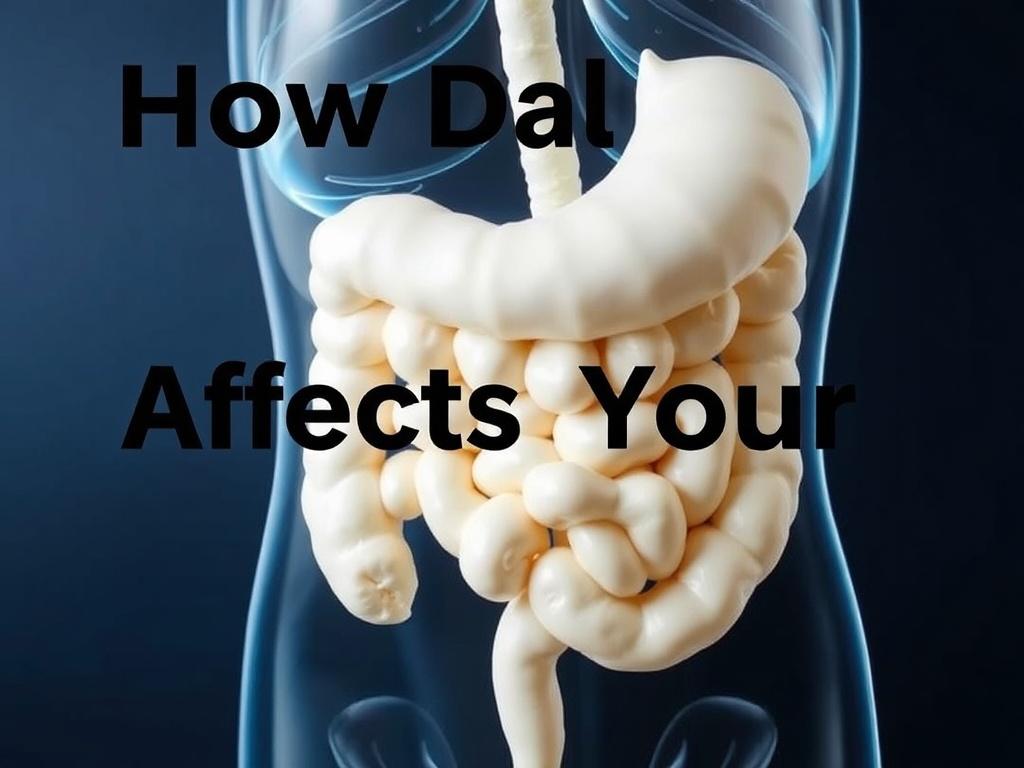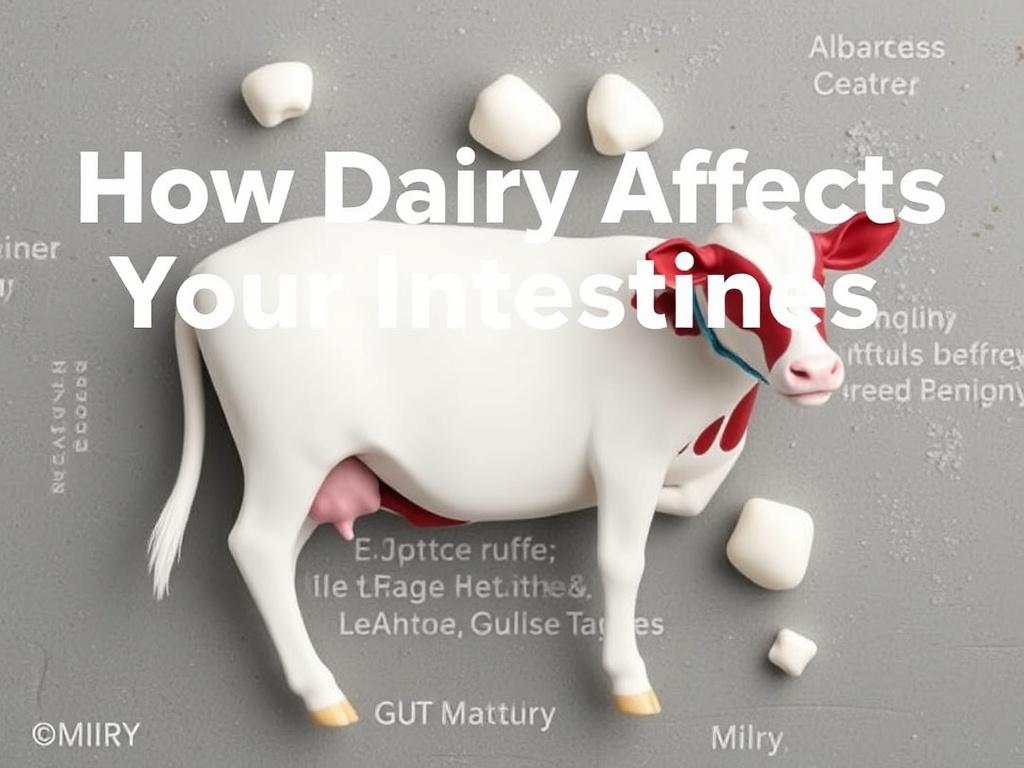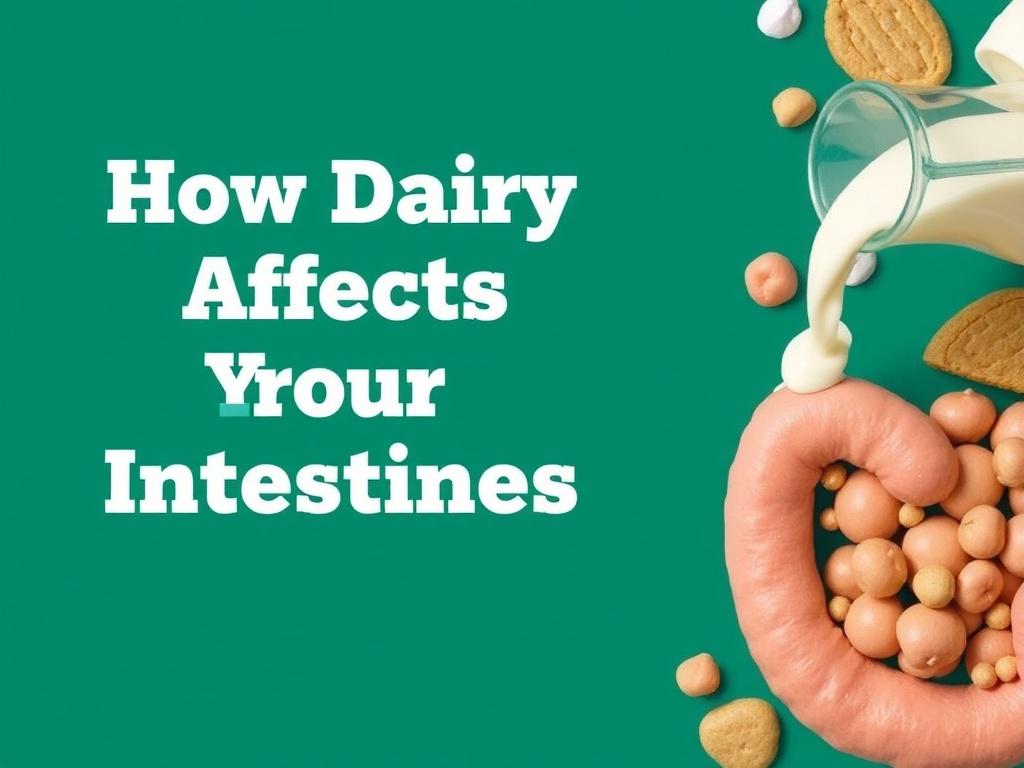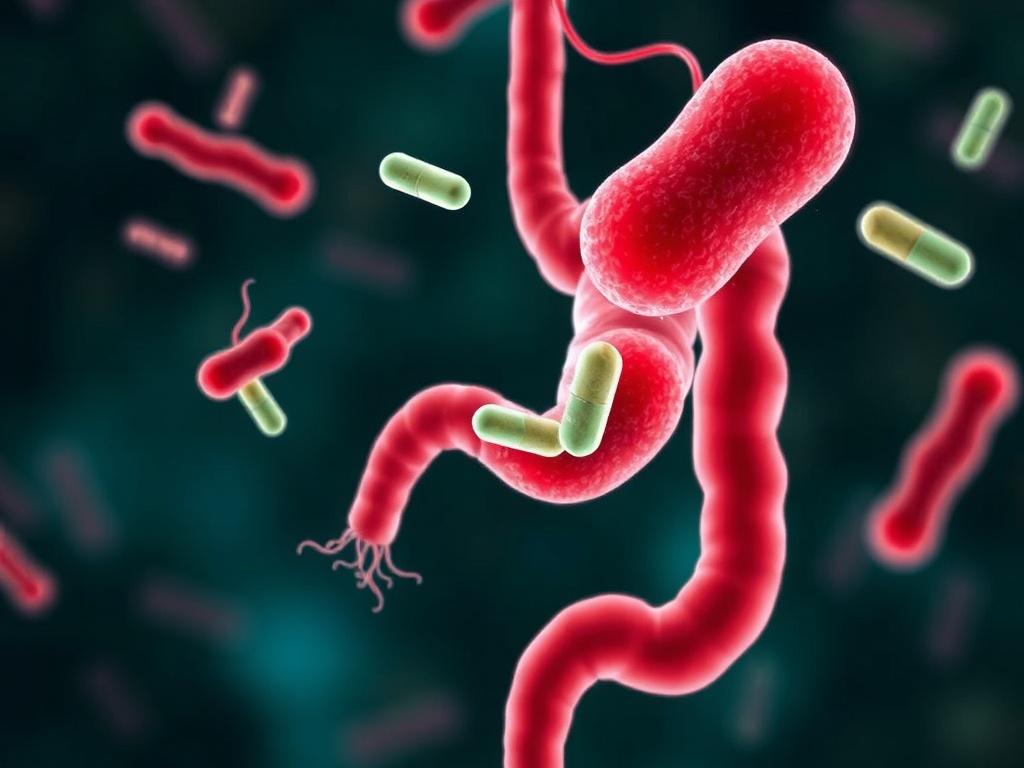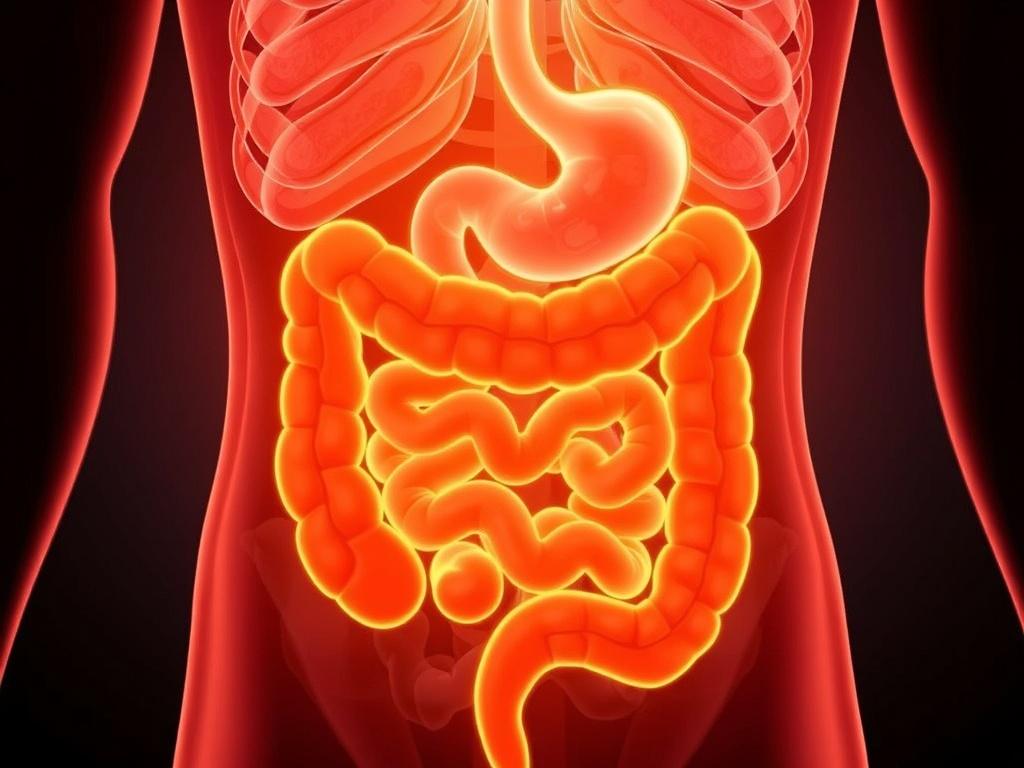Dairy products have been a staple in many diets worldwide for centuries, offering a rich source of calcium, protein, and other essential nutrients. From creamy milk and cheese to delicious yogurt and butter, these foods have become ingrained in our daily lives. Yet, many people wonder how dairy affects your intestines and overall gut health. Is it truly beneficial, potentially harmful, or somewhere in between? In this article, we’ll explore the complex relationship between dairy consumption and intestinal health, diving into the science behind digestion, common sensitivities, gut flora, and much more.
What Happens When You Eat Dairy?
When you consume dairy, your digestive system sets into motion a series of processes designed to break down and absorb its components. Milk and other dairy products contain lactose, a sugar that requires the enzyme lactase to be digested properly. If your body produces enough lactase, lactose will be broken down into glucose and galactose, which are absorbed into the bloodstream to be used as energy.
However, many people have some degree of lactose intolerance, meaning their intestine produces less lactase than needed to digest lactose fully. The undigested lactose then travels to the colon, where bacteria ferment it, causing symptoms like bloating, gas, cramps, and diarrhea.
Besides lactose, dairy is also rich in fats and proteins such as casein and whey. These components can influence intestinal motility and microbiota composition, affecting how your gut operates on a day-to-day basis.
Lactose Intolerance: What You Need to Know
Lactose intolerance is one of the most common digestive issues worldwide, affecting approximately 65% of the global population. It arises when the small intestine does not absorb enough lactase to process lactose properly. Symptoms usually appear within 30 minutes to 2 hours after consuming dairy and can include:
- Bloating
- Abdominal pain and cramps
- Diarrhea
- Gas and flatulence
- Nausea in some cases
Various factors influence the severity of lactose intolerance, such as age, ethnicity, and individual gut enzyme production. Many people manage symptoms effectively by moderating dairy intake or choosing lactose-free options.
Dairy and Gut Microbiota: Friends or Foes?
Your intestines house a thriving community of microorganisms—commonly known as the gut microbiota—that play a vital role in digestion, immune function, and overall health. The foods you eat directly impact the composition and activity of this microbial community.
Studies show that fermented dairy products like yogurt and kefir can positively affect the gut microbiota by introducing beneficial bacteria (probiotics), which may improve intestinal barrier function and reduce inflammation. Conversely, some types of dairy fat may have mixed effects on gut bacteria, potentially promoting inflammation in susceptible individuals.
Fermented Dairy: A Probiotic Powerhouse
Fermented dairy products undergo a natural process where bacteria break down lactose and produce lactic acid. This fermentation lowers lactose content and enriches these products with live bacterial cultures, which can aid digestion and support gut health.
These probiotics may help alleviate symptoms of lactose intolerance by improving lactose digestion. Additionally, they support beneficial bacteria already residing in your gut and compete against harmful bacteria, maintaining a healthier balance.
The Impact of Dairy Fat on Intestinal Health
Milk fat contains saturated fats that have sparked debate regarding their influence on health. Some research suggests high intake of saturated fats can disrupt the gut microbial balance, potentially favoring bacteria linked to inflammation and metabolic diseases.
Here’s a simple table breaking down the effects of different types of dairy on intestinal health:
| Dairy Type | Key Components | Effect on Intestines |
|---|---|---|
| Whole milk and cream | High in saturated fat, lactose | May increase gut inflammation in sensitive people; can be hard to digest for lactose-intolerant individuals |
| Low-fat milk | Lower fat, contains lactose | Easier to digest, moderate impact on gut flora; still challenging for lactose-intolerant people |
| Yogurt, kefir, fermented dairy | Probiotics, reduced lactose | Supports healthy microbiota; may improve lactose digestion and reduce symptoms |
| Cheese (aged) | Very low lactose, higher fat | Generally well tolerated; may cause issues if consumed in excess due to fat content |
| Lactose-free dairy | No lactose | Good alternative for lactose-intolerant individuals, minimal digestive issues |
How Dairy Intolerance and Allergies Differ
It is important to distinguish between lactose intolerance and dairy allergy, as they affect your intestines and overall health differently. Lactose intolerance is related to enzyme deficiency, primarily causing digestive discomfort from undigested lactose. Dairy allergy, however, results from the immune system reacting to milk proteins like casein or whey.
Food allergies can trigger more severe symptoms, including intestinal inflammation, diarrhea, vomiting, or even systemic reactions such as hives and anaphylaxis. If you suspect an allergy rather than intolerance, it’s crucial to seek medical advice for testing and management.
Symptoms of Dairy Allergy to Watch For
- Severe abdominal pain
- Diarrhea with blood or mucus
- Vomiting
- Skin rashes and hives
- Difficulty breathing (in extreme cases)
While less common than lactose intolerance, dairy allergies require strict avoidance of all dairy products to prevent serious health issues.
Dairy’s Role in Inflammatory Bowel Disease (IBD) and Other Conditions
People with inflammatory bowel diseases such as Crohn’s disease or ulcerative colitis sometimes report dairy as a trigger for symptom flare-ups. However, the relationship between dairy and IBD is complex and individual-specific. Some research suggests dairy might exacerbate symptoms due to its fat content or because it contains certain proteins that can irritate sensitive intestines.
On the other hand, fermented dairy products with probiotics might be beneficial, improving gut barrier function and lowering inflammation. For individuals with IBD or other intestinal disorders, working with a healthcare provider or dietitian to assess dairy tolerance is essential.
Dairy and Irritable Bowel Syndrome (IBS)
Irritable bowel syndrome, a common functional gut disorder, often overlaps with lactose intolerance. For many people with IBS, dairy can worsen symptoms such as bloating, gas, and diarrhea. These symptoms occur because IBS patients tend to have heightened gut sensitivity and sometimes impaired carbohydrate digestion.
Reducing or eliminating lactose-containing dairy could alleviate IBS symptoms for some. However, many people tolerate small amounts or benefit from lactose-free and fermented dairy options.
The Nutritional Benefits of Dairy for Your Intestines
Despite some challenges, dairy products also offer essential nutrients that can promote intestinal and overall health. Calcium plays a vital role in muscle function, including those in your digestive tract, supporting proper bowel movements and reducing constipation risk.
Additionally, protein in dairy promotes the repair and maintenance of intestinal lining cells, which are critical barriers that prevent harmful substances from entering the bloodstream. Fermented dairy’s probiotic content encourages beneficial bacteria that aid in nutrient absorption and immune system education.
Key Nutrients in Dairy and Their Gut Benefits
- Calcium: Supports muscle contractions and may protect against colon cancer.
- Vitamin D (often fortified): Modulates immune responses in the gut.
- Protein: Helps maintain and repair intestinal tissues.
- Probiotics: Enhance microbial balance and reduce inflammation.
How to Manage Dairy Intake for a Healthy Gut
Finding the right balance when it comes to dairy is personal and depends on your digestive system, genetic background, and overall dietary habits. If you’re unsure how dairy affects your intestines, consider these strategies:
- Start with your symptoms: Keep a food diary to track how different dairy products impact your digestion.
- Try lactose-free products: These allow you to enjoy dairy without discomfort.
- Incorporate fermented dairy: Yogurt and kefir may improve your gut flora and reduce symptoms.
- Consult a healthcare provider: If you suspect lactose intolerance or allergy, consider testing.
- Moderate intake of high-fat dairy: Excess saturated fat can harm gut health, so opt for low or moderate-fat options.
Alternative Sources of Dairy Nutrients
If you need to avoid dairy entirely, make sure to find alternative sources of key nutrients:
| Nutrient | Dairy Source | Alternative Sources |
|---|---|---|
| Calcium | Milk, cheese, yogurt | Leafy green vegetables, fortified plant milks, almonds, tofu |
| Protein | Milk, cheese, whey | Legumes, nuts, seeds, soy products |
| Vitamin D | Fortified milk, butter | Sun exposure, fatty fish, fortified cereals |
The Future: Personalized Nutrition and Dairy
Advances in nutrition science and microbiome research are opening doors to more personalized dietary recommendations. Genetic tests can sometimes identify lactase persistence or deficiency, forecasting whether dairy might upset your intestines. Meanwhile, microbiome profiling helps understand how your gut flora responds to dairy, allowing more tailored advice.
As science grows, we may better predict individual reactions to dairy and customize diets that optimize gut health and overall well-being. For now, paying attention to your body’s signals and choosing dairy products wisely remains the best approach.
Conclusion
Navigating the relationship between dairy and intestinal health is far from straightforward. While dairy offers valuable nutrients and probiotic benefits, its lactose and fat content can challenge digestion, mainly in those with lactose intolerance or sensitive guts. Fermented dairy products stand out as gut-friendly options, helping enhance beneficial bacteria and ease lactose digestion. Meanwhile, dairy allergies and chronic intestinal conditions warrant careful avoidance and professional guidance. The key to how dairy affects your intestines lies in understanding your body, choosing suitable dairy forms, and balancing intake wisely. By embracing an informed, personalized approach, you can enjoy the benefits of dairy without compromising your gut health.
Читайте далее:
